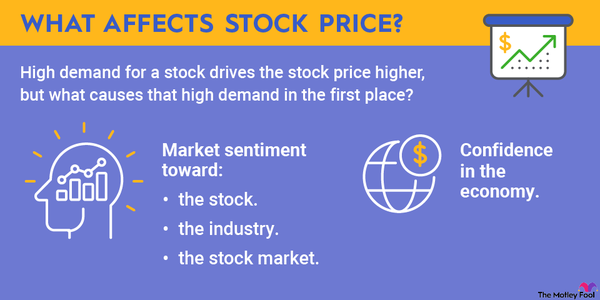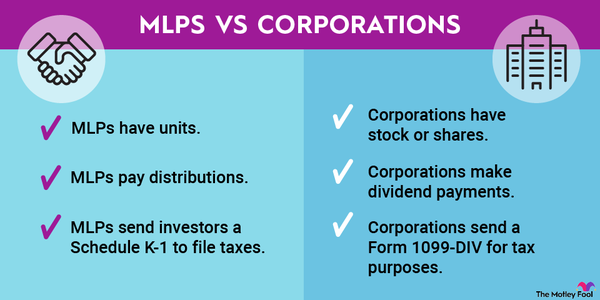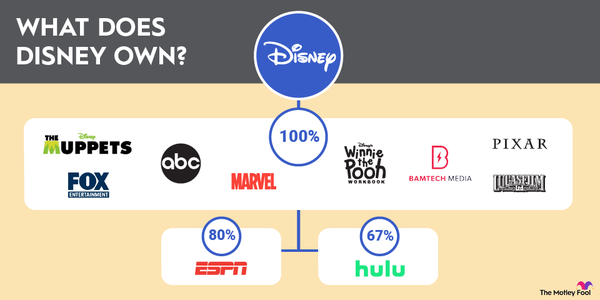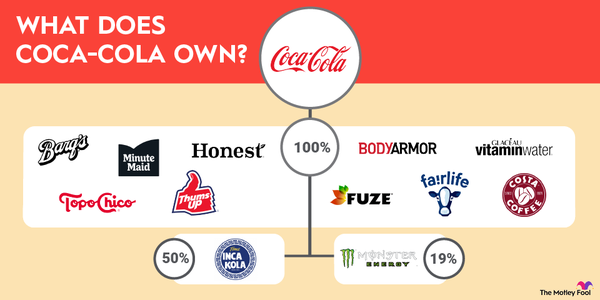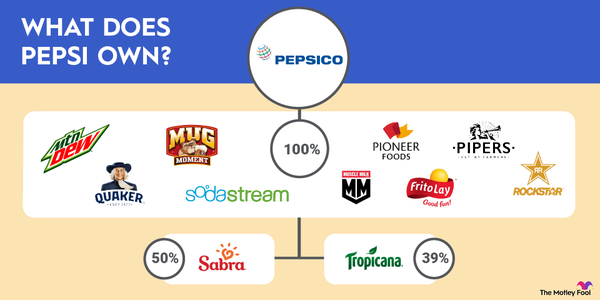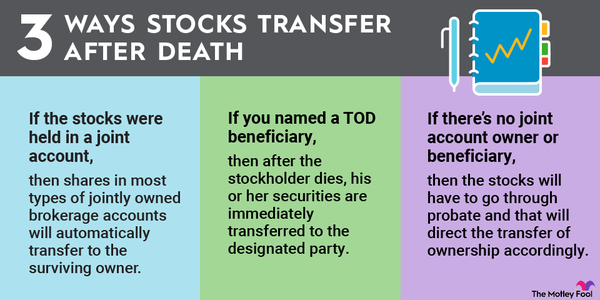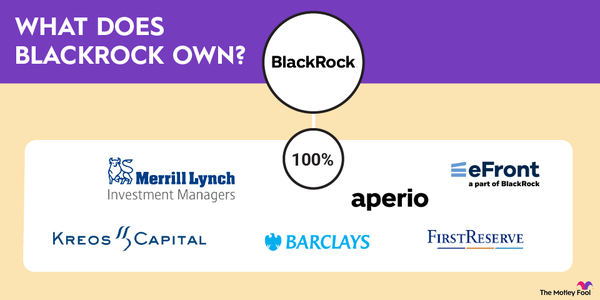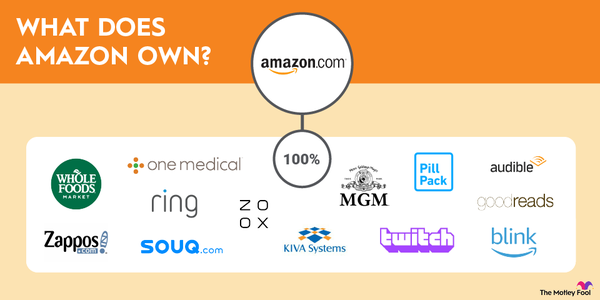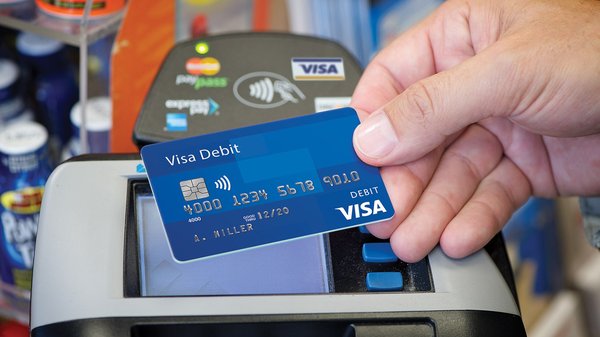Delta Air Lines (DAL 1.76%) is known for being one of the top airlines in the world, with a fleet of more than 1,200 aircraft and a partner network that serves over 700 destinations in more than 130 countries and territories around the world. As of the end of the fiscal year 2023, Delta offered more than 4,000 daily flights to hundreds of destinations across half a dozen continents with its extensive network of domestic and international hubs. The company is also a founding member of the SkyTeam alliance, an aviation industry network that facilitates codeshare connections and other services with partner airlines.
The story of Delta Air Lines goes back to the year 1925 and the first-ever aerial crop dusting company called Huff Daland Dusters, Inc. The company operated a crop duster that was intended to stop the spread of boll weevils in cotton fields. The company's general manager, C.E. Woolman, and a group of investors decided to buy out the business. It was then named Delta Air Service in 1928. Woolman would later become the company's first CEO. By 1929, Delta Air Service was supporting passenger operations, with its first route going from Dallas to Jackson, Mississippi, and its routes quickly expanded.
However, its passenger operations stopped in 1930 when another airplane snagged Delta's airmail contract and bought out its assets. Woolman and other investors were persistent, however, and by the end of 1930 they had bought back Delta Air Service's crop-dusting operations, renaming the business once more to Delta Air Corporation. By the mid-1930s, Delta Air Corporation had secured another airmail contract and was doing business as Delta Air Lines, a name it finally formally switched to in 1945. Delta Air Lines initiated regular freight transport operations in 1946 and, a few years later, launched various discounted passenger fare routes.
By the early 1950s, Delta had acquired trunk carrier Chicago and Southern Airlines, which enabled it to launch its inaugural international routes. In the mid-1960s, Delta Air Lines was an early adopter of computer technology for reservation systems and launched Deltamatic reservations services using IBM's (IBM 0.01%) high-speed data processing system, the IBM 7070. Delta has made multiple acquisitions throughout its history, including Northeast Airlines in 1972, Western Airlines in 1987, most of Pan Am's trans-Atlantic routes in 1991, and Northwest Airlines in 2008.
Delta Air Lines has faced its share of highs and lows through the years, even before the COVID-19 pandemic brought travel to a screeching halt. Headwinds in the airline industry in the early 2000s, sky-high jet fuel prices, and increased competition from low-fare operators led the company to accumulate almost $20 billion in debt and almost $8 billion in losses between 2001 and 2005. In September 2005, the company filed for Chapter 11 bankruptcy protection but exited these proceedings in April 2007. As part of its exit, shares were then relisted on the New York Stock Exchange.
If you're interested in learning how to buy Delta stock, whether or not the company looks like a solid investment, whether or not it pays a dividend, its stock split history, and alternative ways to invest in the company rather than directly buying shares, keep reading.
Stock
How to invest
How to buy Delta Air Lines stock
You can buy shares of Delta Air Lines through any brokerage account. Because Delta Air Lines is publicly-traded, buying shares of the company is fairly straightforward. Let's take a look at the key steps you need to take to buy Delta Air Lines stock.
Step 1: Open a brokerage account
First, if you don't have a brokerage account already, opening one will take just a few minutes. Once you've selected a broker, you'll need to have some information handy to get your account opened. This will include personal details such as your Social Security number, address, and bank account information.
When selecting the type of brokerage platform you want, you should consider what company offers the best selection of investment products for your long-term investing goals. The best brokerage accounts have interfaces that are easy to use, offer quality support and security, and allow you to invest in various asset classes.
If you're planning on using your investment account to help build your nest egg for retirement, you may decide you'd rather open a tax-advantaged account vs. a basic brokerage account. Many stockbrokers allow users to access their platform via mobile device, desktop, or online, along with other features.
Some brokers require a minimum balance in your brokerage account. These platforms may also charge commissions and/or transaction fees to process trades. Consider the features that matter most to you before you choose what platform to go with.
Step 2: Figure out your budget
Once you have your brokerage account ready to go, if you're looking to buy shares of Delta Air Lines stock, you'll want to figure out your budget. You don't need to have a lot of money to start investing, and consistently putting even a modest amount of cash into quality businesses can help you successfully grow your portfolio with time.
Make sure you've paid off debt and have emergency savings shored up before you start investing large chunks of change into the stock market. You can also build a starter position in investments you like and direct small inputs of cash to those positions regularly.
Once you've determined what money you have to invest that you don't need for things like emergency savings or to cover near-term expenses, you can get a better picture of the right sum to invest. For example, many long-term investors prefer a dollar-cost averaging approach, putting a fixed amount of cash into their portfolio each month as an effective strategy.
Step 3: Do your research
Whether you decide to invest in Delta Air Lines stock or any other stock, you need to do your research. Understand its financials, risks, and business model before you ever hit the buy button. Look at recent earnings reports, news, analyst ratings, and ensure you understand how the business operates thoroughly.
Deciding whether you should put your cash to work in this business will ultimately be a personal decision. You should invest in companies that you not only understand but are fundamentally interested in and that align with the overall investing philosophy you have for your portfolio.
Price alone should make you buy or sell a stock. If shares are trading up or down relative to recent performance, consider the factors behind those movements and whether the business is in solid shape, not solely whether the stock appears cheap or expensive.
Step 4: Place an order
Finally, if you're ready to buy shares of Delta Air Lines, open your brokerage account and search for the ticker symbol DAL. While the interface of every brokerage account will look slightly different, once you enter the ticker in the search bar, you should see a page that comes up with charts and various stock data.
You'll also see an order box where you can specify the dollar amount or how many shares of Delta Air Lines stock you want to buy. Most brokerage platforms will let you buy whole as well as fractional shares of a stock.
Finally, you'll want to figure out whether you're going to place a market order or a limit order. A market order is usually preferable, as your order will execute right away at whatever price the stock is currently trading at. With a limit order, you specify the highest price you're willing to pay per share, and the order will not proceed until the stock hits that price.
A limit order can expire, and the stock may or may not reach the price you specify. So, if you want to add Delta Air Lines or any other stock to your portfolio right now, a market order is probably the best approach.
Should I invest?
Should I invest in Delta Air Lines?
Whether or not you want to invest in Delta Air Lines will depend on numerous factors, including your risk tolerance, investing style, and the general industries and sectors that you gravitate toward. Delta Air Lines has the qualities of both a value stock and a dividend stock, so investors who are looking for an established business in the global airline industry might find a lot to like about this business.
The airline industry has always been a cyclical one, and that's a fact that investors in any airline stock -- even a leader like Delta -- should understand before putting cash into this space. It's no secret that the 2020s have brought their fair share of headwinds even for the most well-hedged of travel businesses, but Delta is one of the big names that is steadily growing again as the industry booms back to growth.
The law of supply and demand heavily dominates the airline industry, and Delta is no less affected by this reality than any other airline. It benefits from pricing power, but when supply is greater than demand, its top and bottom lines will suffer. The post-COVID-19 pandemic travel boom has slowed, so while demand is still relatively strong, supply has exceeded demand of late. The travel recovery of the last few years helped companies like Delta recover from the pandemic period, where both business and leisure travel hit rock bottom, but it's also natural to expect that those growth rates will normalize with time.
One recent headwind that Delta (and other airlines) faced occurred in the summer of 2024 when a software update by Crowdstrike (CRWD 2.04%) caused Microsoft's (MSFT 1.06%) operating system to crash. Thousands of flights were canceled worldwide. Those cancellations and travel reimbursements to passengers have affected Delta's recent financial reports. That said, if you're looking at a minimum buy-and-hold horizon for this stock of three to five years or longer, short-term issues shouldn't be cause for alarm.
Delta is one of the oldest operating airlines in the U.S. and the world and currently controls a roughly 27% share of total industry revenue of the international airlines industry. In the U.S., Delta controls a roughly 18% domestic market share. Almost all of Delta's revenue comes from passengers through ticket sales and related services, but it also makes money from cargo transport services by which it carries cargo on regular passenger aircraft both domestically and abroad.
Delta even maintains control over a notable part of its fuel supply chain through its wholly owned subsidiary, Monroe Energy. Its refinery operations have the capacity to refine around 200,000 barrels of crude oil per day. The company derives some revenue from third-party refinery sales, as well.
In the first nine months of Delta's fiscal 2024, it generated $46.1 billion in total operating revenue. The figure was a 5% bump upwards from the same period in fiscal 2023. Broken down by segment, passenger revenue rose 4% year over year, while cargo segment revenues popped 7%. Its "other" segment, which includes revenue sources like third-party refinery sales and ancillary services, rose 13% compared to the first nine months of fiscal 2023.
Profitability
Is Delta Air Lines profitable?
Yes, Delta Air Lines is profitable. The company reported net income of $2.6 billion in the first nine months of fiscal 2024. That was a 2% increase from the year-ago period. The company delivered operating income of $4.3 billion in that same time frame, also a 2% year-over-year increase.
It's worth noting that Delta Air Lines has a substantial cash position. It ended the most recent quarter with about $4 billion in cash on its balance sheet. The company has also delivered an operating cash flow of approximately $6.7 billion over the trailing 12-month period and free cash flow of more than $9 billion.
Dividends
Does Delta Air Lines pay a dividend?
Delta Air Lines does pay a dividend. The company temporarily suspended its dividend during the COVID-19 pandemic in 2020, but initiated its payout again in 2023. That yield was approximately 1.1% in October 2024, which is around what the average stock trading on the S&P 500 pays. While Delta has generally paid a modest dividend stretching back through its history, it had steadily raised the payout before suspending it during the pandemic.
ETFs
ETFs with exposure to Delta Air Lines
If you don't want to buy whole shares of Delta Air Lines, there are other ways to gain exposure to this company without purchasing the individual stock. One option can be to purchase an exchange-traded fund (ETF), which can allow you to put your investment capital into numerous stocks across various sectors at one time. Some ETFs are structured to track the returns of a particular index or sector, while others are designed to exceed that performance.
ETFs that offer exposure to Delta Air Lines include iShares Core S&P 500 ETF (IVV 0.62%), SPDR S&P 500 ETF Trust (SPY 0.58%), U.S. Global Jets ETF (JETS 1.79%), SPDR S&P Transportation ETF (XTN 0.87%), Invesco S&P 500 GARP ETF (SPGP 0.62%), and Invesco S&P 500 Equal Weight Industrials ETF (RGI -0.14%).
Exchange-Traded Fund (ETF)
Stock splits
Will Delta Air Lines stock split?
Delta Air Lines has split its stock a few times in its company history. These splits include a 2-for-1 split in December 1981 and a 2-for-1 split in November 1998. Usually, a company decides to split its shares when the price of the stock has become so elevated that it becomes unattainable for the average investor.
A stock split will increase the number of shares outstanding and lower the cost per share, but it doesn't at all change the underlying value of the company. As of the time of this article, Delta hasn't made any announcements of a pending or expected stock split. And considering Delta hasn't traded above $100 a share since it was relisted nearly 20 years ago, a stock split doesn't seem likely either.
Related investing topics
The bottom line on Delta Air Lines
Delta Air Lines has adjusted and persisted through the last few years despite cyclicality, pandemic-driven headwinds, and a normalization of growth from the post-pandemic travel boom. The company remains profitable and is steadily growing revenue, while its cash position looks to be in good shape.
While it takes a certain level of risk appetite to invest in the airline industry, whether you want to buy individual shares of Delta Air Lines stock or own it through an ETF, becoming part owner of this airline industry behemoth could turn out to be a good move five to 10 years down the line.
FAQ
Investing in Delta Air Lines FAQ
Is Delta Air Lines a good investment?
Delta Air Lines has faced challenges throughout its history, including recent years, but the business has risen above these hurdles and is growing its financials steadily. The stock may be a solid investment choice for those who don't mind the cyclicality of the airline industry.
How to buy Delta Air Lines stock?
You can buy Delta Air Lines in whole or fractional shares through your preferred brokerage.
Can you invest in an airline?
Numerous airlines are publicly traded, including Delta Air Lines.
Is Delta Air Lines a public company?
Delta Air Lines is publicly traded on the New York Stock Exchange.




































